It can be alarming when your hamster bites you. The bite hurts, and you are probably wondering why they did it. In this article, we are going to answer what to do when your hamster bites you and what it all means.
If your hamster has just bitten you, you should do the following:
- Gently lower your hamster back into their cage
- Wash your wound with warm water and an antibacterial agent
- Dry the wound
- Cover the area with a band-aid or loose bandaging
- Monitor the wound for swelling over the next 1-2 days
- Seek medical care if necessary
Caring for yourself after getting bit is vital. After you and your hamster are safe, you can start figuring out why your hamster is biting. Keep reading as we discuss how to get your hamster to trust you and more.

What Does It Mean When My Hamster Bites Me?
Getting bit by a hamster is painful, and it is a habit you want to stop as soon as possible. Hamsters are not usually aggressive. When they are aggressive or biting, it often means something else is going on.
To stop a behavior or habit, the first step is figuring out why this behavior is happening.
Hamsters bite in different situations for many reasons. Some of these reasons include the following:
- Mistaken identity
- Fear/startled
- New environments/New people
Our hammies are small, prey animals. This means they are on high alert and frighten quite easily. Let's take a closer look at the reasons that a hamster bites.
Read more on our blog post, "How To Stop My Hamster From Biting Me?"
Mistaken Identity
Hamsters rely on scent often. Their sense of smell helps them seek food or treats and detect potential dangers. At times, this heightened sense can create confusion for our pets.
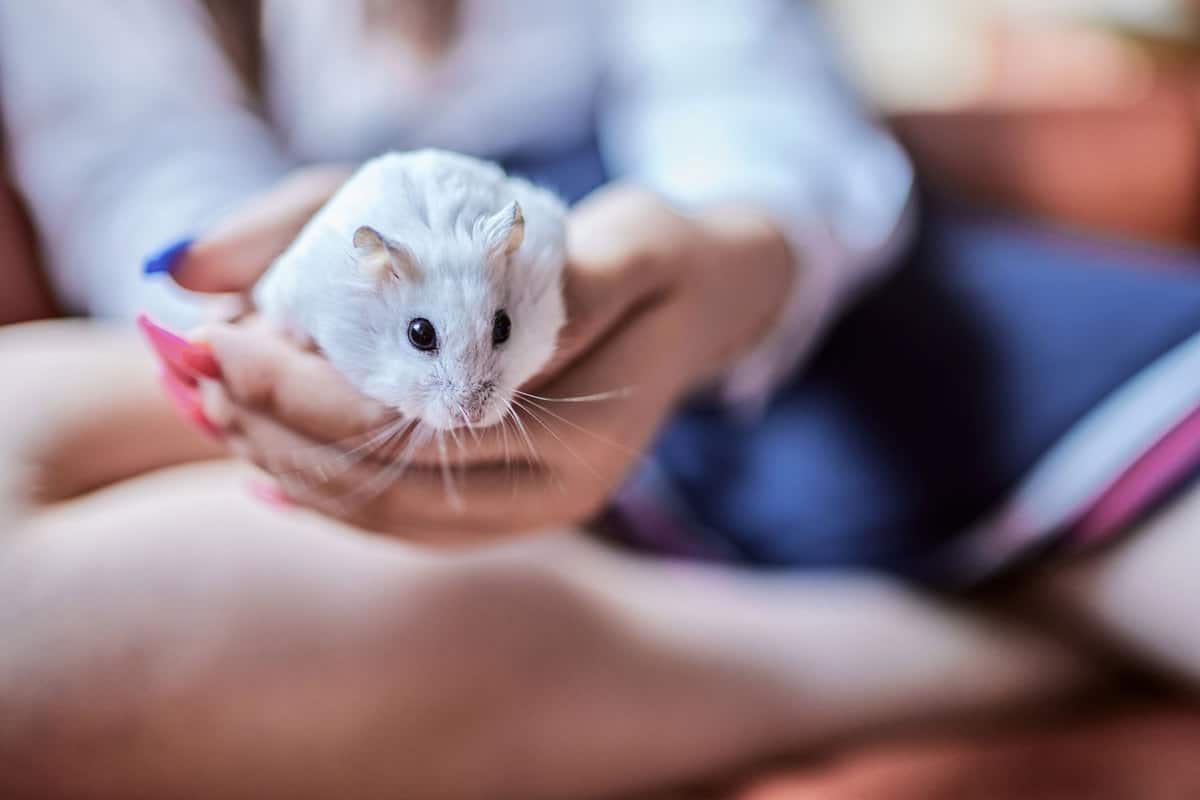
If you handle your hamster without washing your hands, your hands may contain some tasty or confusing smells. They can mistake your finger for a treat or piece of food, causing them to bite.
Washing your hands before handling your hammie can reduce the chances of you getting bit. Additionally, this precaution protects your hamster from any bacteria or other organisms you can carry on your hands.
Your Hamster Gets Startled Or Feeling Fearful
The most common reason a hamster will bite is out of fear or being startled. Furthermore, there are endless reasons or causes of fear in hamsters.
Loud noises, sudden movements, and waking a hamster from their sleep are just a few reasons a hamster would bite.

Anytime you are handling your hamster, or going into their home, move slowly and carefully. Avoid shoving your hand abruptly into their enclosure or knocking items over.
Allow your hamster to smell your hand before picking them up. Allowing them to climb onto your hand in their time is even better. Try not to force interactions, especially if your hamster is a new addition.
New Environments Or New People
Moving a hamster into a new environment is shocking for them. It can be normal for a hamster to experience high-stress levels during a transition and a short period after as they get comfortable.
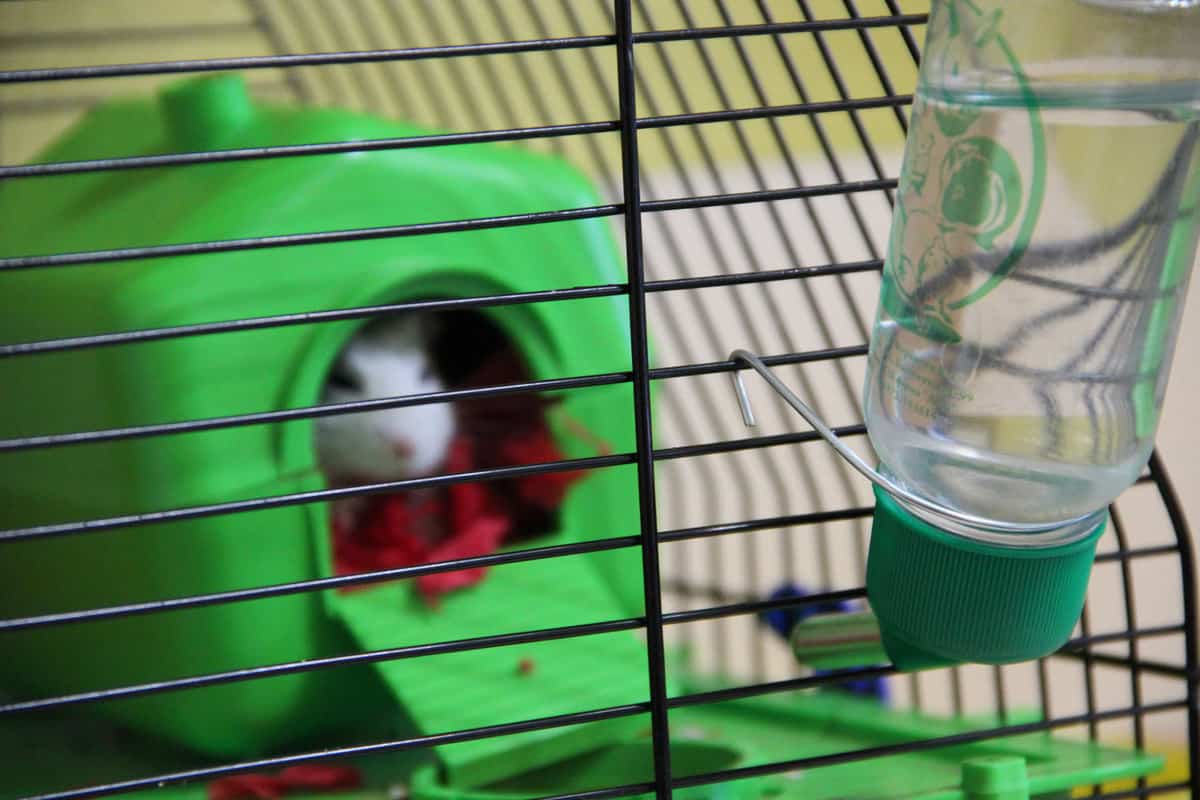
When a hamster is experiencing stress, the likelihood they will bite is pretty high. It's nothing against you; there's just a lot of change they need time to get used to. Slow and gentle introductions are key.
To help get your hamster more comfortable, provide them with plenty of food, water, and treats. Additionally, you can make their cage comfy with toys and hiding places.
It's best to avoid letting strangers handle your pet. It can take time for a hammie to build a trusting bond with a person. These small pets are likely to be startled by new people without this bond, motivating them to bite and get away.
Learn more on our blog post, "How To Help A Hamster Adjust To Their New Home."
How Much Does A Hamster Bite Hurt?
In general, hamster bites do hurt. After all, it is a bite that will leave you with a small wound to care for. The severity of hamster bite can change based on the type of hamster you have and your pain tolerance.
Smaller species of hamsters, like dwarf hamsters, have a less painful bite due to their small size. However, these species get reported as biting more than larger breeds.
Syrian hamsters are larger and bite less. When they do bite, it does hurt more than a dwarf hamster, just because they are bigger. In either case, hamster bites tend to be superficial.
Even though the wound is small, thoroughly wash and care for the area to avoid further issues, like an infection.
Learn more on our blog post, "Do Hamster Bites Hurt?"
How Do I Get My Hamster To Trust Me?
Building trust with your hamster can take time and patience, but it is worth the bond. This bond gets built through comfort and familiarity. There are a series of taming techniques you can go through to help this process.
The first step in building a relationship with your hammie, is getting them used to your presence and scent. This may begin with simply placing your hand in their home, allowing them to sniff you and crawl up on your hand.
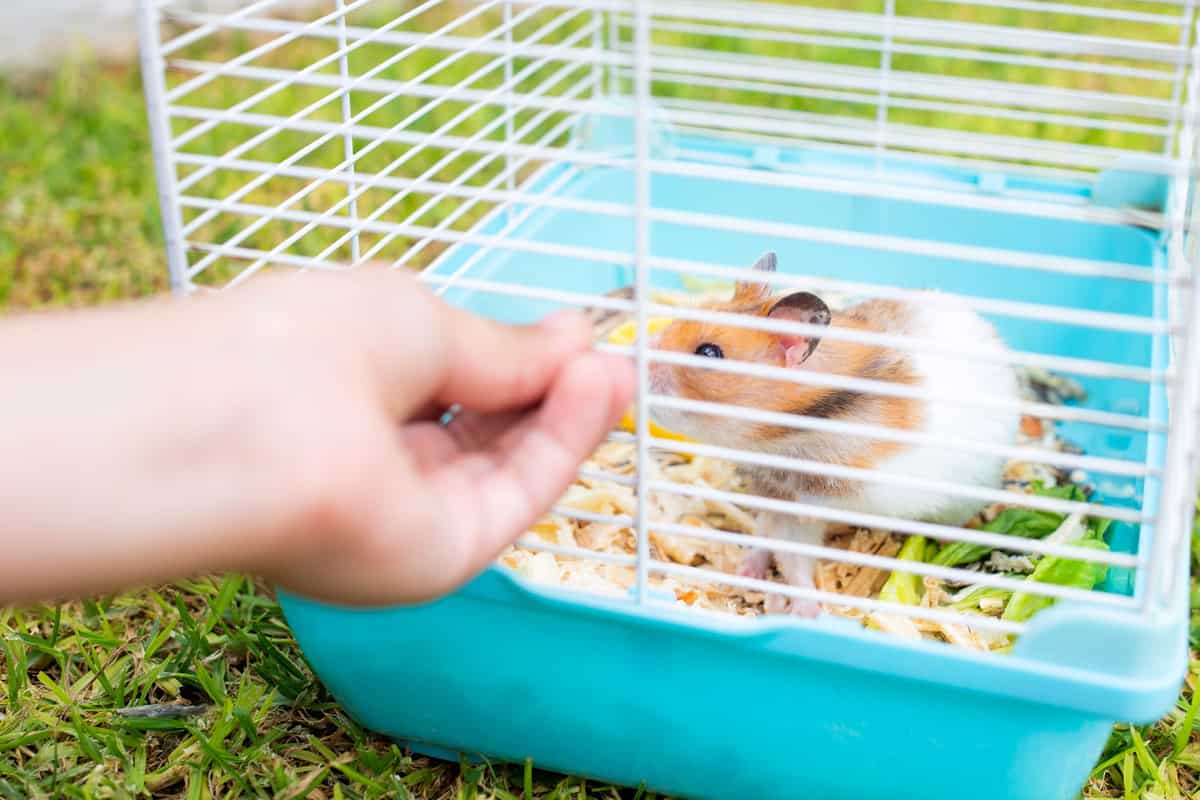
Once you get them comfortable on your hand, you can start to pick them up. Whenever you interact with your hamster, have treats readily available. Creating a positive experience with each handling session motivates trust-building.
Additionally, you can play simple games with your pet. Including their favorite foods and toys while playing keeps them comfortable and engaged.
Stop handling when you notice your hamster is tired or stressed. You can try again the following day.
Consistent gentle handling, positive playtime, and keeping your hamster's basic needs met will get your hamster to trust you over time.
How Long Does It Take A Hamster To Get Used To You?
The exact time it takes a hamster to get used to you can depend on the type of hamster, their personality, age, where they came from, and other factors. It may take your hamster just a few days or a couple of weeks to get comfortable.
You can watch for signs that your hamster is becoming more comfortable with you and their environment. Indications your hamster is getting used to you include:
- A general decrease in stress or fear when handling
- Your hamster burrows or stretches out to relax around you
- They run to their cage walls or doors when you are approaching
Once your hamster becomes bonded to you, they will look forward to seeing you. Often, they will run to their food bowl when you approach with food. Additionally, they may start to watch you from their cage with curiosity.
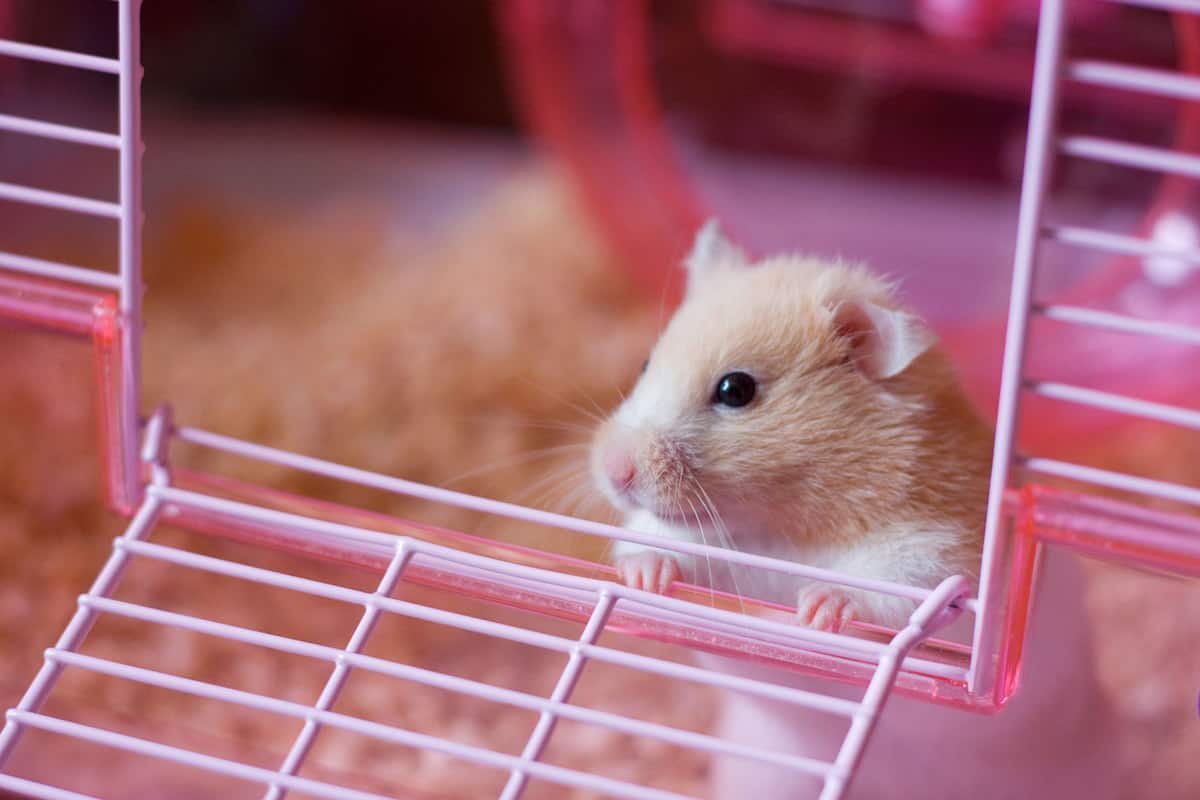
Read more on our blog post, "My Hamster Is Scared Of Me - What To Do?"
Do Hamsters Carry Diseases Humans Can Catch?
Hamsters are a low-risk pet. They are generally clean and unlikely to spread disease to humans. However, while uncommon, hamsters can have conditions that can spread to humans. These conditions include the following:
Each of these conditions will cause your hamster to exhibit signs or symptoms of being ill. Noticing your hamster is sick is the first step in resolving any issue they may be dealing with and stopping the chance of it spreading to you.
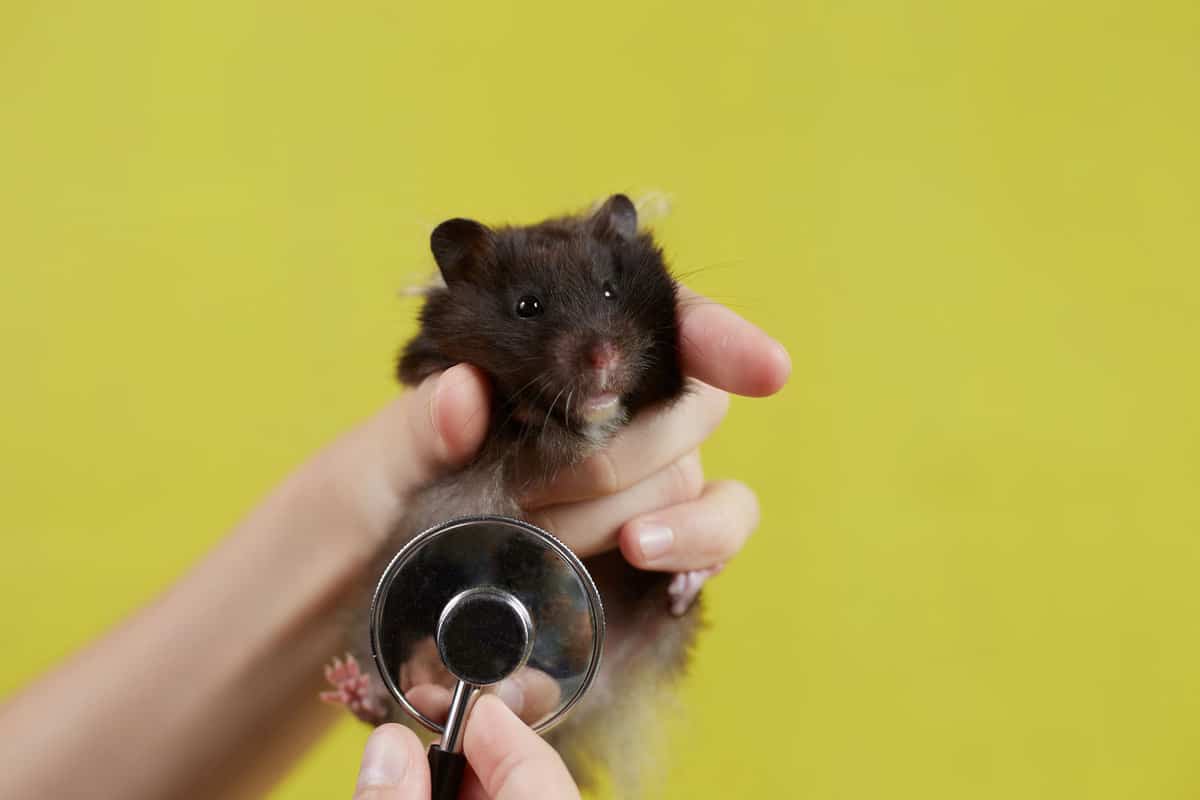
Signs your hamster may be sick and need medical attention include lack of appetite, decreased energy, weight loss, excessively wet or dirty fur, coughing, sneezing, and discharge coming from the mouth or nose.
Furthermore, if your usually tame and relaxed hamster bites you, this can indicate they are ill or in pain.
Due to the size of hamsters, most illnesses can affect them quickly. If you notice the mentioned symptoms or a sudden change in their behavior or routine, get in touch with your local Veterinarian for advice on the next steps.
Read more on our blog post, "Do Hamsters Need Vet Care?"
In Summary
If a hamster bites you, immediately lower your hamster and care for the wound. Finding out why your hamster is biting can help you correct the behavior. We hope you found this article insightful when it comes to hamster bites.
Are you looking for more information on hamster behavior? Have a look through our blog post, "Do Hamsters Like To Be Petted."



